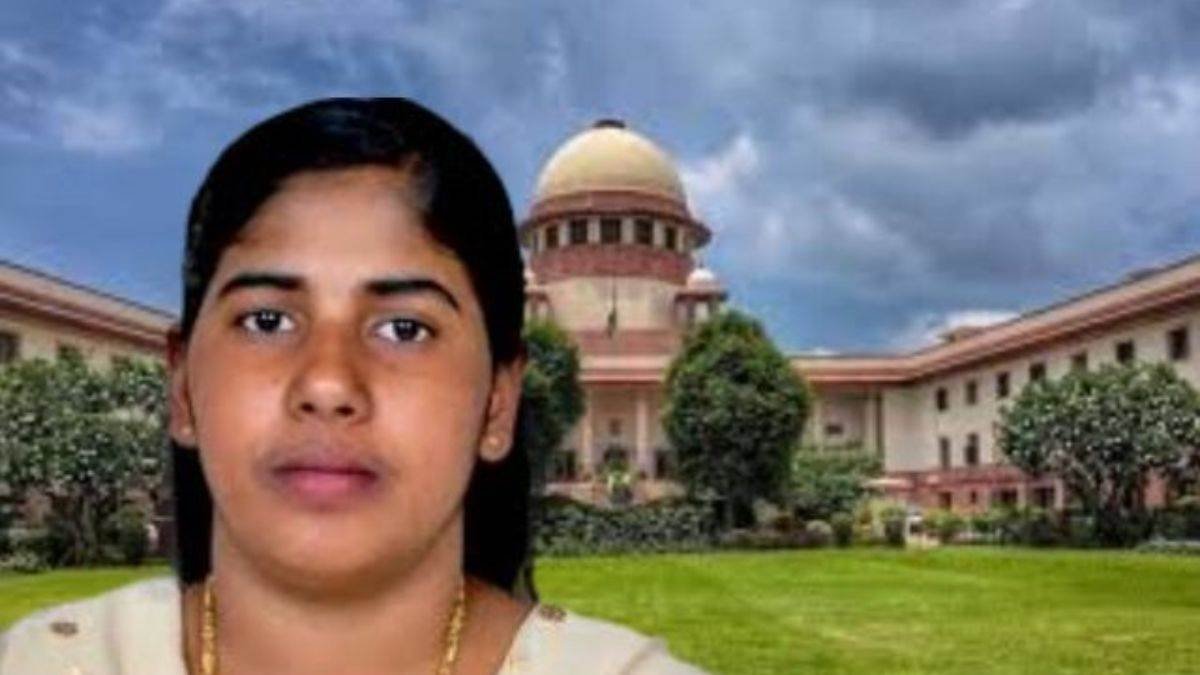Arrested weeks later near the Saudi border, Nimisha claimed she never intended murder, only to incapacitate Mahdi temporarily.
New Delhi- As the clock ticks toward July 16, the fate of Nimisha Priya—a 34-year-old Indian nurse from Kerala—hangs in the balance in Yemen’s Sanaa Central Prison. Sentenced to death for the 2017 killing of her Yemeni business partner, her case has become a flashpoint for debates about migrant workers’ rights, judicial fairness, and India’s diplomatic capabilities in crisis situations.
Efforts to save the Indian nurse from hanging have intensified. Amid the possibility of Priya being hanged in Yemen on July 16, Kerala Chief Minister P. Vijayan has sought Prime Minister Narendra Modi’s intervention in this matter.
Meanwhile, the Supreme Court will hear the petition related to saving the Indian nurse on Monday. The petition demands to direct the central government to use diplomatic means to save the Indian nurse. A bench of Justice Vikram Nath and Justice Sandeep Mehta may hear this case.
This petition has been filed by an organization called Save Nimisha Priya International Action Council, which is providing legal aid to help the nurse.
Priya’s family and various political parties and organizations have also called upon the Indian government to make diplomatic efforts to save her. The Ministry of External Affairs has said that it is keeping a close watch on the developments related to the case and is providing all possible help.
From Kerala to Yemen: A Dream Turned Nightmare
Nimisha’s journey began in the quiet town of Kollengode in Kerala’s Palakkad district. Born into a financially struggling family on January 1, 1989, she overcame educational hurdles with church support to complete her nursing degree. Unable to secure work in Kerala due to incomplete school certifications, she migrated to Yemen in 2008, eventually working at a government hospital in Sanaa.
In 2014, driven by entrepreneurial ambition, Nimisha took a fateful step: she invested her life savings and loans totaling ₹60 lakh (approx. $72,000) to open the Al Aman Medical Clinic. Yemeni law mandated local partnership for foreign businesses, leading her to collaborate with Talal Abdo Mahdi, a textile merchant. This partnership would prove catastrophic.
Post-2015 Yemeni Civil War, Mahdi allegedly began exploiting Nimisha—stealing clinic funds, seizing her passport, and subjecting her to physical and psychological abuse. Court documents reveal he even falsified marriage documents to control her. Despite filing police complaints in 2016, Yemeni authorities took no action, leaving Nimisha trapped in what human rights groups call “modern-day slavery.”
The breaking point came in July 2017. Desperate to escape, Nimisha—a trained nurse—administered ketamine to Mahdi to retrieve her passport. The sedation proved lethal. In a panicked attempt to conceal the death, she and an accomplice dismembered the body. Arrested weeks later near the Saudi border, Nimisha claimed she never intended murder, only to incapacitate Mahdi temporarily.
A Trial Marred by Injustice
Legal experts highlight glaring flaws in Nimisha’s trial:
- Language Barrier: Proceedings occurred entirely in Arabic, which Nimisha barely understood, without translation support.
- Legal Representation: She lacked proper defense counsel during initial hearings.
- Cultural Bias: Yemen’s male-dominated judiciary showed minimal leniency toward a foreign woman accused of killing a local man.
Despite appeals emphasizing these irregularities, Yemen’s Supreme Judicial Council upheld the death sentence in November 2023. President Rashad al-Alimi ratified the execution in December 2024, rejecting clemency pleas.
The Indian Govt Limitations and Efforts:
The Indian government’s efforts have been hamstrung by:
- With Houthi rebels controlling Sanaa, diplomatic channels are fragmented.
- While Yemeni law permits diyya (blood money) settlements, Mahdi’s family refuses negotiations. A demanded $40,000 compensation faced transparency disputes after intermediaries allegedly misused funds.
- India cannot legally intervene in another nation’s judicial process without Yemen’s consent.
Notably, the MEA has:
- Facilitated prison visits for Nimisha’s mother and daughter in April 2024.
- Engaged Omani and Iranian mediators for backchannel talks.
- Funded partial blood money payments through the Indian Embassy.
LokSabha MP and General Secretary, INC KC Venugopal has also written a letter to the Prime Minister seeking intervention in the case. Taking to x, the parliamentarian wrote, “The death sentence against Nimisha Priya is a grave travesty of justice. She is a victim of unimaginable cruelty and domestic abuse on foreign soil, driven to the brink. She doesn’t deserve to die. I’ve written to the PM seeking urgent intervention to prevent her execution.”
V.D Satheesan, the Leader of Opposition in Kerala Assembly has also appealed to the President. In his letter, the leader wrote: “In a desperate effort to escape this situation and recover her passport, Mrs. Priya allegedly attempted to sedate Mr. Mahdi in 2017 – an attempt that unintentionally proved fatal, leading to her conviction.
Yemen’s judicial system provides for the practice of diyat (blood money), wherein the victim’s family may grant a pardon in exchange for financial compensation. Though efforts are made in this regard, the lack of official diplomatic engagement between India and the Houthi authorities in Sana’a, these efforts face severe obstacles.
In light of this humanitarian crisis, I humbly urge your good office to take urgent steps, through all available diplomatic and humanitarian channels, to secure a stay on the execution and extend all necessary legal, diplomatic, and financial support to save the life of an Indian citizen under dire circumstances.“
This case is of much importance for India because over 9 million Indian expatriates work in Gulf nations, often without legal safeguards. Female migrant workers face heightened risks of exploitation in patriarchal societies. India lacks robust mechanisms to assist citizens in non-cooperative foreign jurisdictions.
With Yemeni executioners known to disregard last-minute stays, the next 48 hours will test India’s geopolitical heft and the world’s commitment to humanitarian justice.

